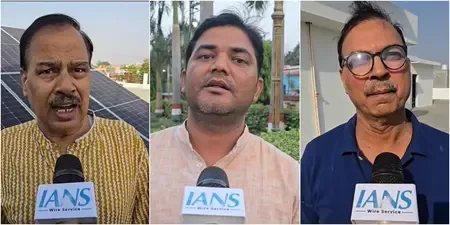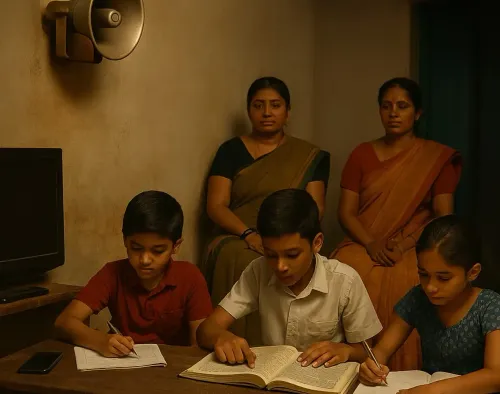Success of 'PM Surya Ghar Muft Bijli Yojana' in Varanasi with Over 100,000 Registrations

Synopsis
Key Takeaways
- 100,000 registrations in Varanasi for solar panel scheme.
- Installation process completed in one week to ten days.
- 70% government subsidy offered to beneficiaries.
- Significant reduction in electricity bills reported.
- Positive community response and awareness through campaigns.
Varanasi, April 5 (NationPress) As part of Prime Minister Narendra Modi's visionary ‘PM Surya Ghar Muft Bijli Yojana’, a remarkable 100,000 individuals in Varanasi have signed up for the program. The installation of solar panels under this initiative is swiftly progressing, offering financial relief to residents through reduced electricity bills along with government subsidies.
Launched in 2024, the scheme is being actively pursued by the Varanasi administration to ensure it reaches every household.
To date, approximately 12,000 homes in Varanasi have successfully installed solar panels, with the initiative continuing to expand. Residents are expressing their satisfaction, as the installation of solar panels has remarkably decreased their electricity expenses, with subsidies being credited to their accounts within just a week.
Ajay Srivastava, a representative from UPNEDA (Uttar Pradesh New & Renewable Energy Department Agency), informed IANS about the positive reception of the scheme in Varanasi. He noted that a substantial 70% subsidy is being offered, providing significant relief to consumers. Thanks to various government awareness drives, the community is increasingly informed about the scheme, and the installation of solar panels has resulted in considerable savings on electricity costs.
Ajay Srivastava further elaborated that the registration process is completed in about two hours, and the installation of solar panels is finalized within one week to ten days. After installation, beneficiaries receive the subsidy directly in their accounts.
Beneficiaries have shared their positive outcomes. G.K. Tiwari, one such beneficiary, expressed that he has reaped significant benefits from the scheme. He revealed that his electricity bill once ranged between Rs 4,000-5,000, but now, with the solar panel, it has reduced to just Rs 400-500. The electricity savings are being redirected for other uses.
Another beneficiary, Virendra Pratap Singh, explained that after installing a solar panel four months ago, his home now produces 15 units of electricity each day. His solar panel system generates 450 units monthly, offering substantial relief from his electricity expenses. Virendra described the scheme as highly beneficial and mentioned that he learned about it through a newspaper article, prompting him to take advantage of the opportunity.










